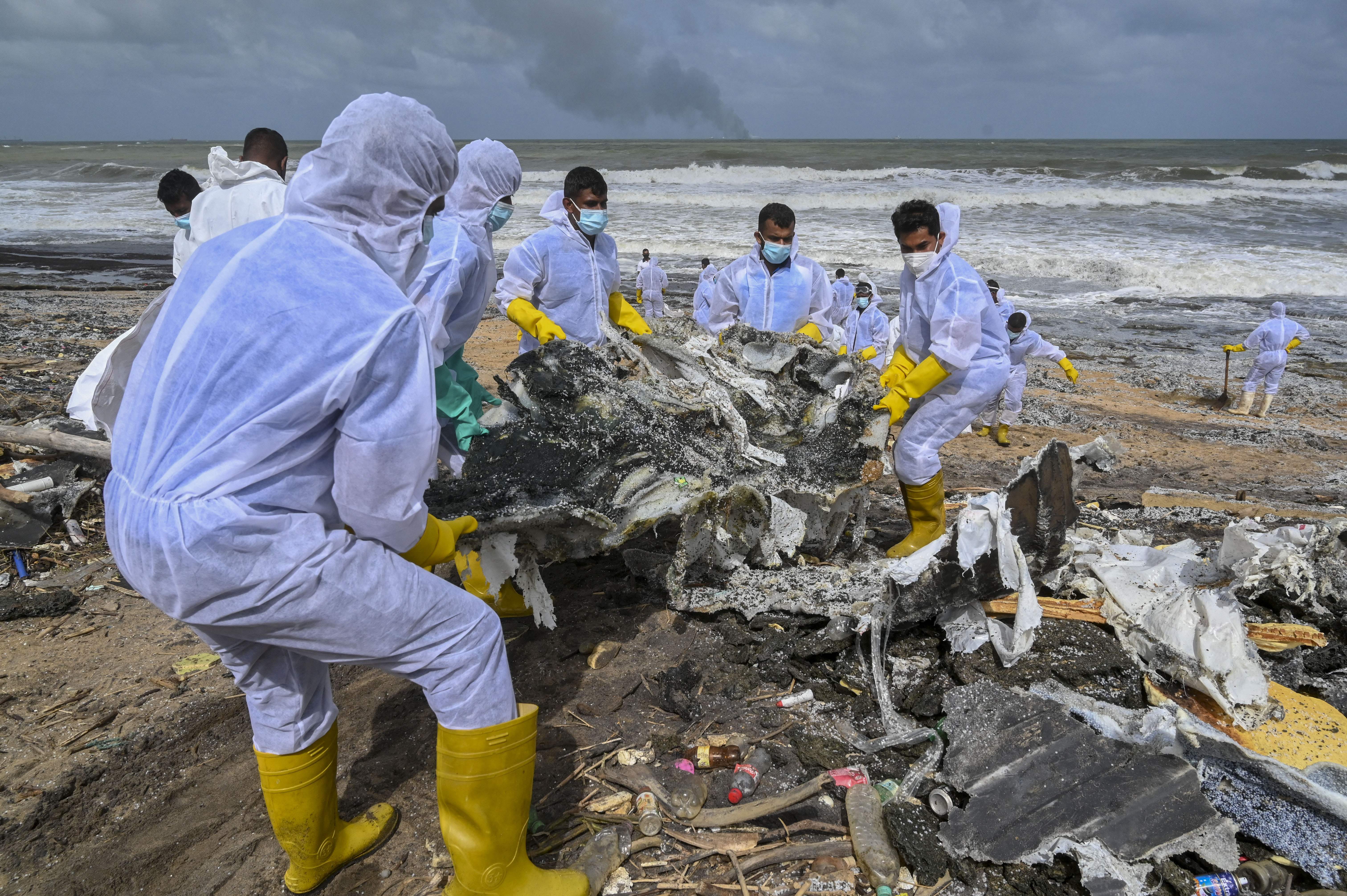Ship on fire off Sri Lanka coats tourist beach in oil and debris
Sri Lankan authorities claim crew knew of a nitric acid leak aboard the vessel even before it entered Sri Lankan waters
In a major setback to the marine environment and the fishing community, a container ship off the coast of Sri Lanka has been on fire for the past eight days, leaking oil and debris onto nearby tourist beaches on the western coast.
The container ship MV X-Press Pearl, registered with a Singapore shipping company, was carrying tonnes of chemicals and cosmetics. The Sri Lankan navy has been working with the Indian navy to put the fire out amid fears that if the ship sinks, it would be a major environmental disaster. The officials say that monsoons and the rough sea are making it difficult to continue the operation.
Even though the fire seems to be in control now — as per the photos taken by the Indian coast guard — Sri Lanka’s Marine Environment Protection Authority (MEPA) has issued a warning of a growing risk of acid rain.

The X-Press Pearl first reported smoke from the cargo hold while at Colombo anchorage, its shipping company X Press Feeders said.
The X-Press Pearl crew of 25 members has been disembarked and are safe but two have sustained leg injuries during the evacuation from the ship on Tuesday morning. They are in stable condition, the vessel owner told the local media.
One among them has tested positive for Covid-19.
The photos of the beach in Negombo with debris and oil from the burning ship have sparked anger among Sri Lankans.
The Sri Lanka Ports Authority Chairman Daya Rathnayake told the media that since the ship was still too hot after the fire was contained, it was difficult to get on board the vessel. Experts will need to evaluate and assess the structure of the vessel to see whether the ship could be towed into deeper waters.
For now, the authorities have told the community living near the Negombo beach that fishing has been banned.
Many questions have been raised about the origin of the fire on the vessel. The chairman of Sri Lanka’s MEPA, Dharshani Lahandapura told news agencies that the crew had known of a “nitric acid leak aboard the vessel even before it entered Sri Lankan waters.” The fire, MEPA believes, could have been avoided had they acted promptly.
A police complaint has been registered against the captain of the ship.
The Singapore based company X-Press Feeders has confirmed that the crew knew of the leak from one of the containers. There have been reports that both India and Qatar refused them permission to dock at Hazira port [in Gujarat in western India] and Hamad port [located south of Doha] in Qatar.
However, the company clarified: “Applications had been made to both ports to offload a container that was leaking nitric acid, but the advice given was there were no specialist facilities or expertise immediately available to deal with the leaking acid.” It said that the container underwent “discharge and loading operations in both ports before continuing on its planned journey to Colombo.”
The beaches on the west coast including Negombo are now being cleaned. Ms Lahandapura told the media that “Our best option is to clean the beach and we suspect any clearing operation will take a few weeks, if not months.” She also said that they will test the air and water quality amid concerns that the fumes from the blazing ship might have contaminated the air and water sources and could have harmful effects on the residents.
Meanwhile, the worry is that the tiny plastic pellets from the debris are now starting to spread to other towns along Sri Lanka's western coastline.
Join our commenting forum
Join thought-provoking conversations, follow other Independent readers and see their replies
Comments